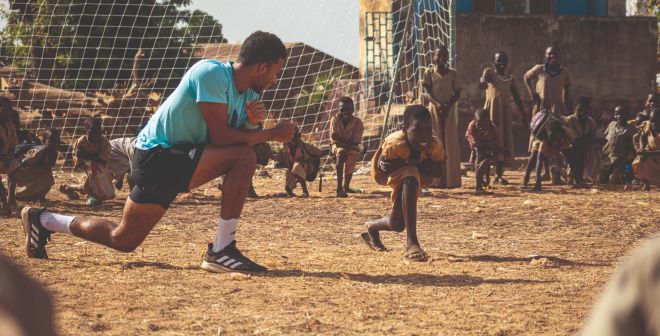Players send their gear for auction
Aisam-Ul-Haq Qureshi is not the most famous of players, but he is very appreciated in the world of tennis. Why is that? Well, because this 43-year old Pakistani, who played the 2022 Australian Open doubles event, urged professional players to send their gear –shirts, equipment, rackets, socks, bandanas, etc.– for an auction held for the victims of the 2010 Pakistan floods in 2011. According to an Immigration and Refugee Board of Canada report issued in December 2011, it killed 2,000 people, flooded 20% of the country, and affected 18 to 20 million people, i.e., 10% of the country’s population. So, when the UN announced they needed to raise $330M asap to rehouse the victims, Qureshi pulled a few strings. “In fact, Federer, Andy Murray, Novak Djokovic, Caroline Wozniacki and Ana Ivanovic have already sent their gear for the auction which will be held from the United Nations platform,” he said in Times of India. “People are contacting me and telling me they want to help out.” Aisam-Ul-Haq Qureshi, who received the Arthur-Ashe Humanitarian of the Year award in 2002 and 2010, is a member of the Champions for Peace Club –a team of 90 athletes whose mission is to build a peaceful world. He is famous for his many commitments; he went to Iraq to meet victims of sectarian violence; to Sri Lanka to support a wheelchair tennis programme for amputee war veterans; and to Cambodia to support the Killing Fields to Tennis Court foundation, which turns former minefields into tennis courts. The money raised in 2011 precisely financed the renovation of the Shahi Bagh tennis club, which was completely wiped out in the floods in Peshawar. Auctions have been legion in tennis since. For instance, during the Covid pandemic, Qureshi raised INR6M (about €70,000) through his Stars Against Hunger campaign; Roger Federer sent match worn shoes, while Rafael Nadal and Novak Djokovic sent their match worn shirts. This money was used to give free food (flour, rice, oil, cereals, tea, milk) and soap to 1,000 Pakistani families of five impacted by the crisis.
More information about
Players

Novak Djokovic

Rafael Nadal

Roger Federer

Andy Murray

Caroline Wozniacki












